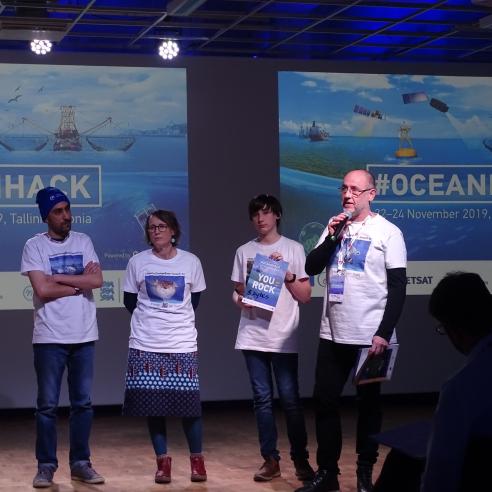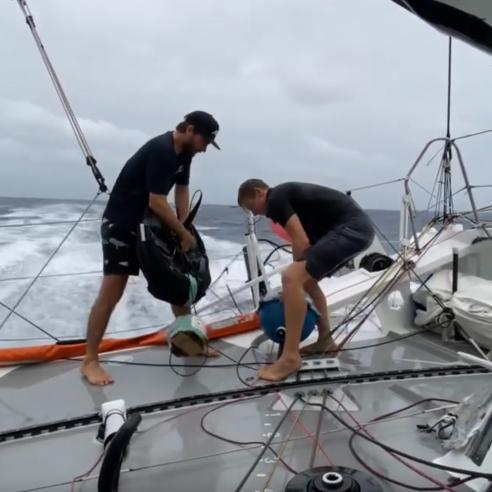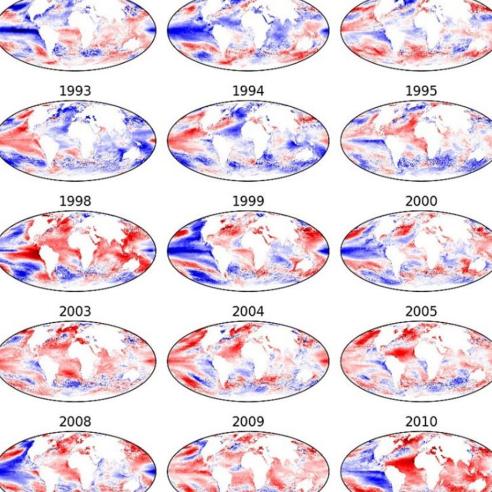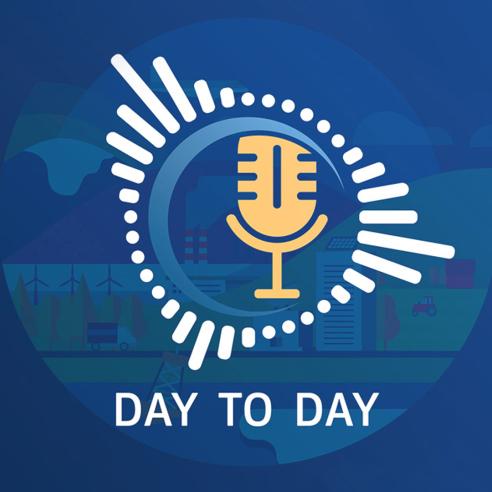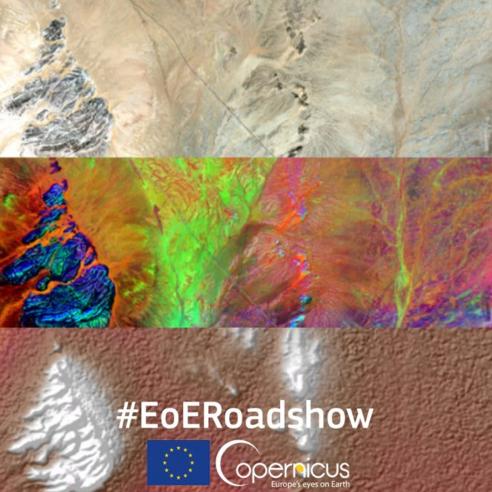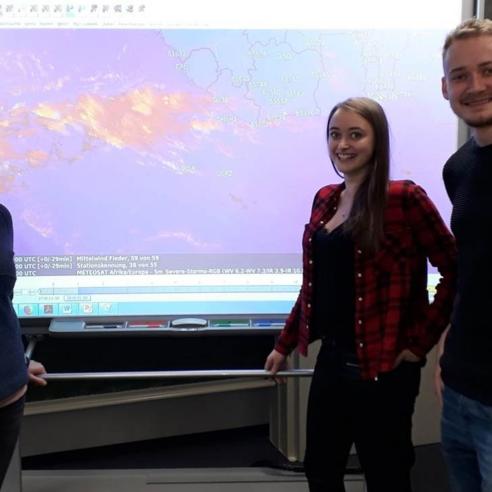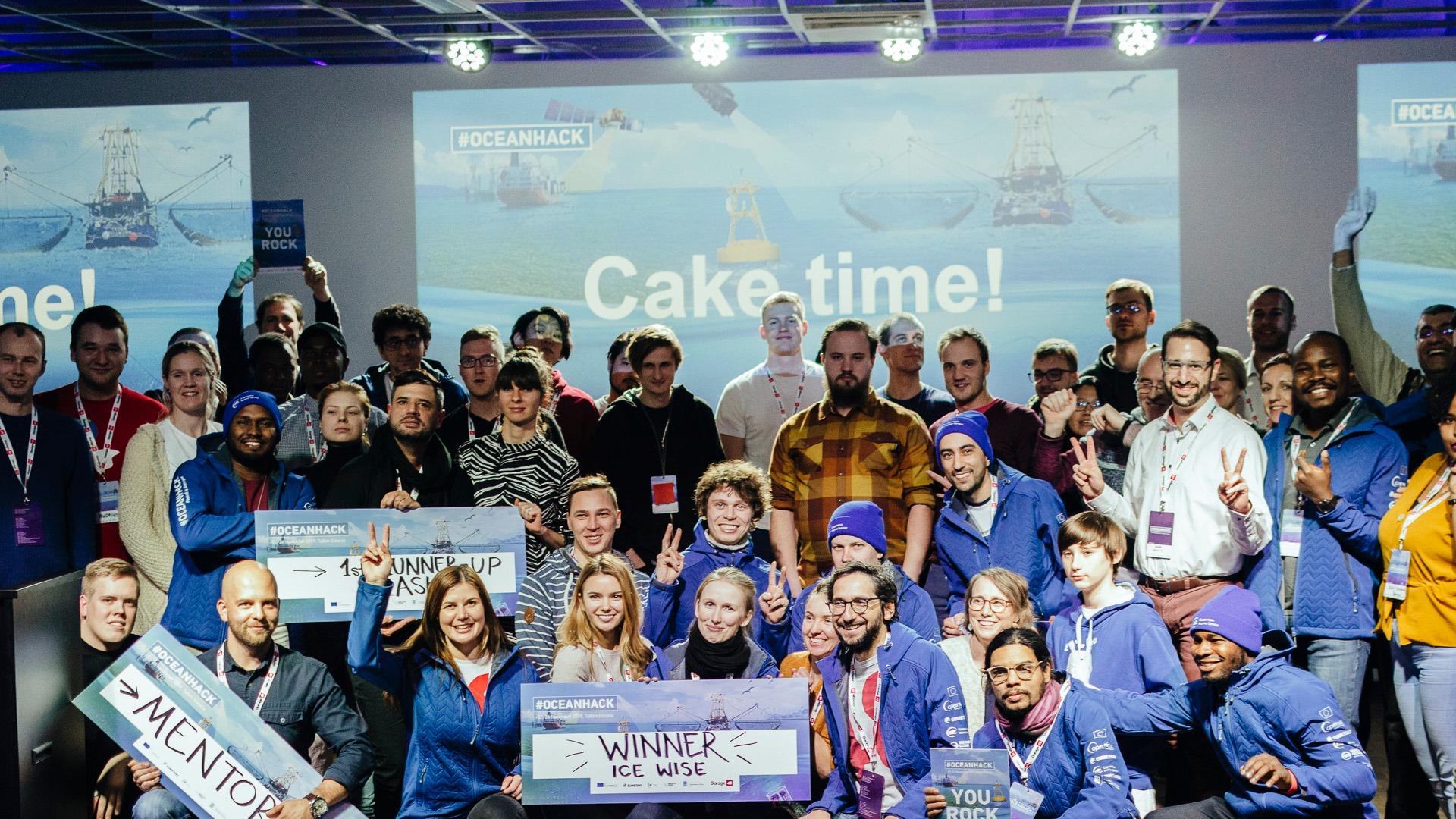
Inspiring ocean projects developed at Copernicus hackathon weekend
From 22-24 November, 10 teams from across Europe and beyond participated in the Copernicus “OceanHack challenge” in Tallinn, Estonia.

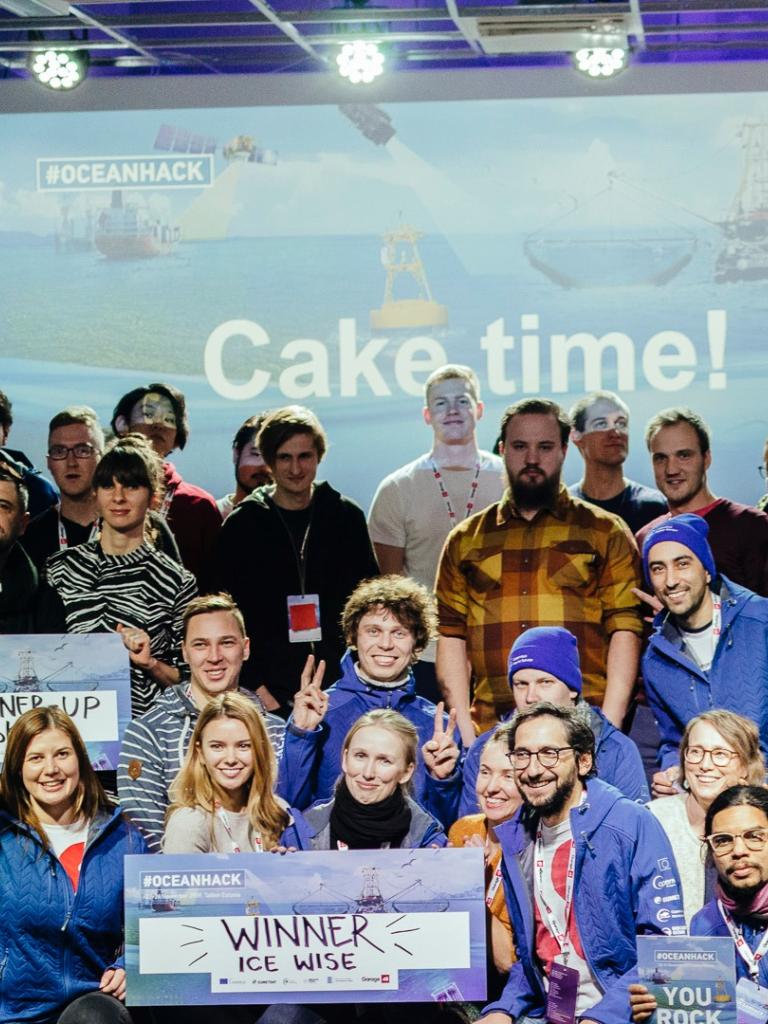
The event was jointly organised by EUMETSAT, CMEMS and the Estonian Environment Agency and hosted at the Tallinn Technical University’s innovation and business centre: Mektory.
15 March 2021
28 April 2020
The event received many applications and 10 teams made it to the final cut. The participants were challenged with either creating new solutions or to add ocean-smart features to existing solutions addressing problems affecting the Baltic Sea region, and were encouraged to use Copernicus marine data where possible. The judges were looking for innovative ideas that could improve the daily lives of people living within the region, and were expecting projects that might educate society or provide users with tools to better understand the oceans.

The teams did not disappoint and worked tirelessly the whole weekend on developing a prototype to present at a final pitching session on Sunday evening. The regular checkpoints allowed mentors to ask questions to the team leads and see what might still be missing from the ideas put forward, enabling them to go away and work on their projects further using the advice given. You could clearly see the progression at each stage as they took the advice on board, so that their final pitch was ready for Sunday.

Each team had just three minutes to convince the judges why their solution was the best before a winner was decided.
There was a real variety of prototypes delivered to the crowd - some further along in development than others - but all very interesting ideas and inspiring to watch. The winning teams and prizes were announced as follows:
• OceanHack winner: IceWise A tool that will provide users with information on the extent and thickness of ice based upon Sentinel-1 data, so that people can travel over sea ice safely;
• Runners up: 8 bytes Aiming to make Copernicus ocean climate data available to everybody by creating a web-based, information mapping tool and providing teaching resources;
• Runners up: Flask Their app will present beach conditions, e.g. water temperature, across the Baltic region in a simple, interactive way. Users can also send virtual messages in a bottle using ocean current data and clean up beach plastic via a credit system with local businesses. There was also the possibility to report on the state of beaches via video/text.

We'd like to say a massive congratulations to all of the participants - you worked incredibly hard this weekend and we really enjoyed hearing your fantastic ideas - we wish you the best of luck in the future, and hope to hear more from each project!
We’d also like to thank our partners the Estonian Environment Agency and CMEMS/Mercator Ocean International, the Department of Marine Systems at TalTech University, plus Astropreneurs and local organisers Garage 48 – it was a really fun weekend and a pleasure to be a part of!
You can watch the final pitches via our Facebook page and view all of the images in our Flickr album here.
Here are all of the participating teams/projects:
- Project Celeste: a user guide for Copernicus services in order to help society get involved within the field of Earth Observation and raise awareness on environmental issues - anybody can learn how to work with the data thanks to eye-catching data visualisations.
- Waves: Using scientific & user-submitted data (algal blooms, pollution levels etc.) and visualising it on a map to provide an overview of the state of the ocean via an interactive app, from which people can report on ocean-related events to raise public awareness.
- Circular Algae: Using Copernicus data to identify and predict algal blooms and their density.
- Marine Plastics: A boat-sharing platform and citizen-science project aiming to encourage the collection of ocean plastic and ocean measurements, whilst also providing local boat owners with extra income.
- Rivers Network: Increasing awareness on the water quality of rivers entering the Baltic Sea by collecting and merging data collected by citizens, government and businesses via web and an interactive app.
- Flask: Presenting beach conditions across the Baltic Sea region in a simple, interactive way. Users can send virtual messages in a bottle to check conditions in advance and clean up plastic via a credit system. Anybody can report on the state of beaches via video/text.
- IceWise: Providing users with information on the extent and thickness of ice based upon Sentinel data as a useful tool, so that people can travel over sea ice safely.
- DPlast: An application visualising how plastic, oil and ships drift around the Baltic Sea by using Copernicus data and sharing this information with governmental institutions.
- 8 bytes: Aiming to make Copernicus ocean climate data available to everybody by creating a web-based information mapping tool and providing teaching resources, also showcasing climate change based on Sea Surface Temperature (SST) satellite imagery.
- Heroes of Baltic: An educational app aiming to increase the level of awareness on ocean pollution, by encouraging small steps that have big effects in the long-term.
